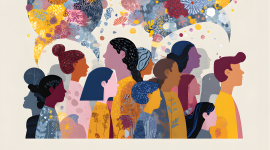Promoting gender equality in climate action: pathways to a just transition

Photo © Burcu Köleli (2022)
Promoting gender equality in climate action: pathways to a just transition
12 Ottobre–6 Novembre 2026
Il corso è disponibile in English
Presentazione del corso
Climate change exacerbates existing gender inequalities and disproportionately affects women and marginalized groups. As countries move toward low-carbon and climate-resilient economies, ensuring that this transition is inclusive and equitable is crucial. Women must be recognized not only as those most affected by climate impacts, but also as powerful agents of change in the design and implementation of climate solutions. A gender-responsive just transition enables the full and equal participation of all people in shaping climate policies and reaping the benefits of green economies. It also ensures that climate action does not deepen existing inequalities, but instead contributes to social justice and sustainable development. This course draws on the ILO's Just Transition Guidelines, gender equality standards, and recent policy tools such as the 2024 ILO Policy Guide on Gender, Equality and Inclusion for a Just Transition in Climate Action, to equip participants with practical knowledge and strategies for integrating gender into climate action.
Chi si iscrive a questo corso?
The course targets: - Policy makers and government officials (labour, planning, gender, environment, climate) - Representatives from employers' and workers' organizations - NGO and civil society leaders - Environmental and climate change professionals - Gender equality specialists and researchers - Private sector actors involved in sustainability and climate transition - Development cooperation and international organization staff


